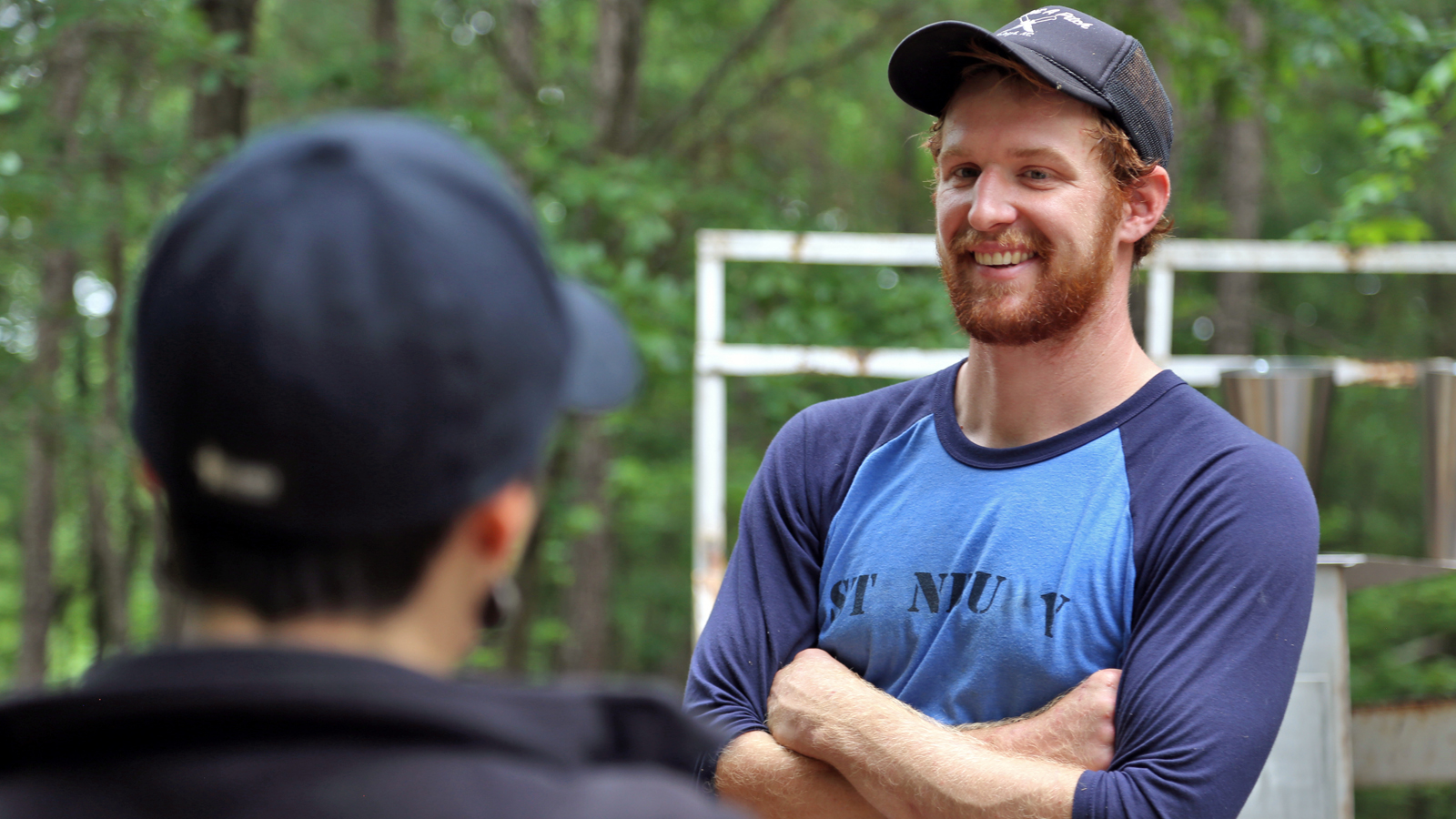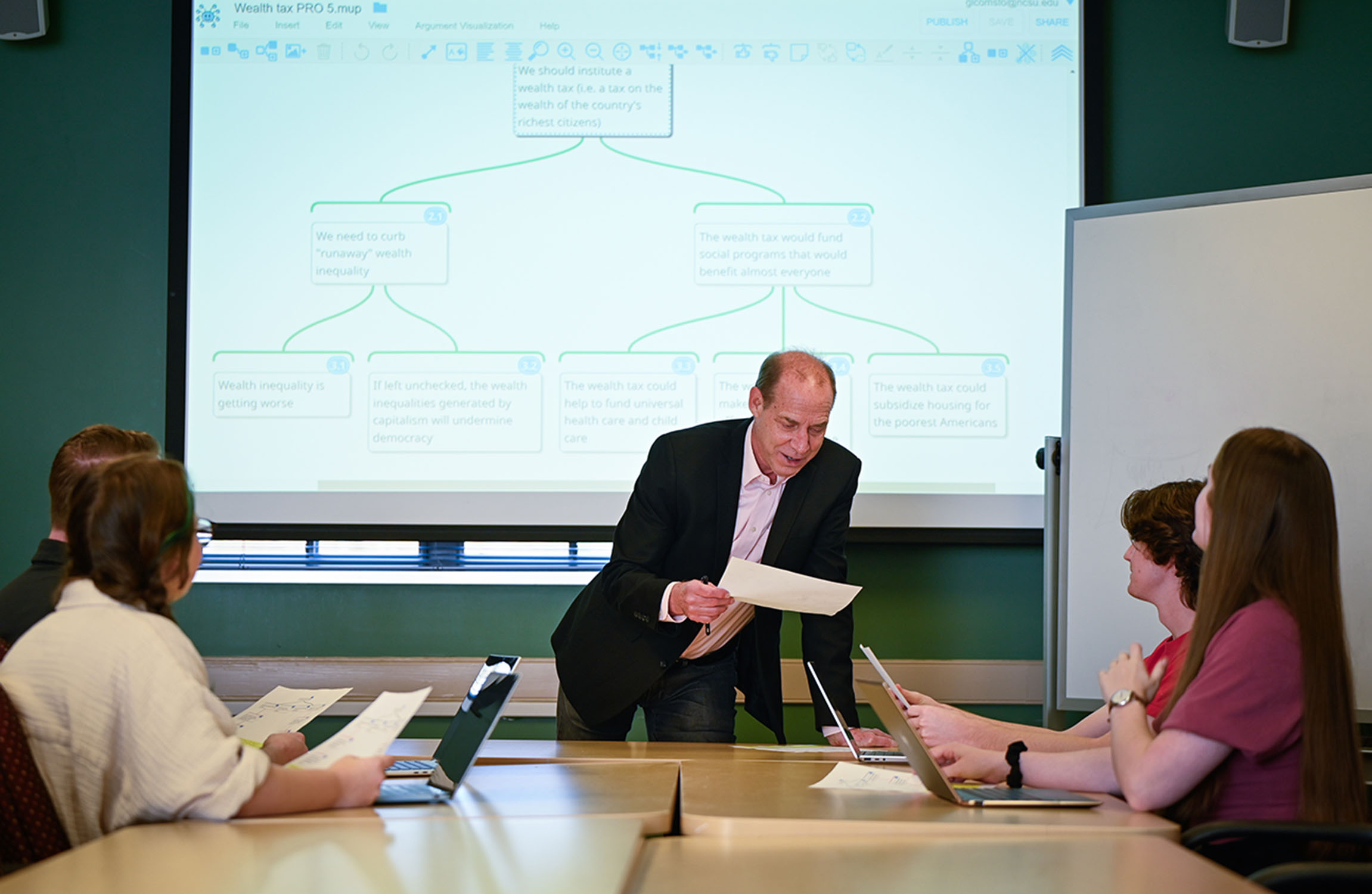Startup Connects Microentrepreneurs With Tourists

Every town has them, the local microentrepreneurs.
You may know them by their less formal titles: the peanut farmer, the local historian, the trail keeper, the winemaker.
Researchers at NC State University say they’ve created a way for the public to easily find and connect with these smallest of small business owners, who often not only serve as experts at their crafts but are also top-notch tour guides in their community.
People-First Tourism Inc. (P1t), founded by NC State scholars with backgrounds in anthropology, sustainable tourism and computer science, creates an online marketplace where the public has direct pathways to vetted microentrepreneurs.
Through its website, www.peoplefirsttourism.com, users can learn about and book experiences with locals, currently ranging from cooking lessons with Costa Rican indigenous people to soap-making sessions in the North Carolina Blue Ridge Mountains.
“It provides an opportunity for people found at the margins of the tourism industry to obtain some extra household cash for work they enjoy,” said Tim Wallace, an associate professor of anthropology and one of the company’s four co-founders. “It allows them to share with visitors, in their own words, something about their life experiences as individuals and members of a vibrant community.”
To book an experience with a local microentrepreneur s online, P1t users search by destination to find the company’s list of various offerings. Users can then read up on what each experience entails and add their selections to an electronic shopping cart.

Each booking sends a text message to the local host, who responds to finalize details. Payment is made online, and the money goes directly to the microentrepreneur.
When the NC State tech-based social venture incorporated in May 2015, the four co-founders specified that any income earned from royalties would go into a People-First Innovation Fund “to support engaged learning, research and innovation that enables microentrepreneurial success among under-resourced populations.” NC State’s Institute for Nonprofits, which served as a key resource to the startup, will manage the newly-created fund.
“It’s pretty inspiring that the co-founders have decided to forego any personal financial gain and make sure that the legacy of this project is carried on by students,” said Elizabeth Benefield, the Institute’s social entrepreneurship program manager.
Benefield said the Institute has worked with the co-founders for several years, connecting them to resources such as SCORE, a group of small-business consultants in Chapel Hill. The Institute also helped answer P1t’s business and operational questions.
“These researchers have stepped out of their comfort zone to create something they deeply believe in, and so we all had a goal of keeping the integrity of the social mission and impact at the center of the work,” Benefield said. “Building a social enterprise is challenging — you’re driving up revenue and at the same time keeping track of a vision that improves the way the world works.”
The project is very much an interdisciplinary effort. In addition to Wallace, an anthropologist, the other co-founders are Duarte Morais and Gene Brothers, professors of Equitable and Sustainable Tourism at NC State, as well as computer science engineer John Bass.
Using grants that stem back to 2010, the team of NC State researchers crafted the concept of the company while studying the effect of tourism development on microentrepreneurs around the world. They interviewed dozens of locals, who largely felt that others in the government and formal industry sectors were telling their stories for them — and often inaccurately.
“This is all about information — it’s about locals being able to show themselves to visitors and about tourists being informed about these entrepreneurs,” Morais said. “Tourists want genuine experiences and want to visit people who are truly sharing who they are and what they love.”
The company’s model wouldn’t work without being able to communicate with its microentrepreneurs, who often live in the most rural of environments. To make sure that channel remains open, Bass said they created a website that works with Short Message Service (SMS) text messaging technology, the most widely-used data application in the world.

“We found that the common denominator between locals was SMS,” said Bass, the director of NC State’s Institute for Next Generation IT Systems. “If there is no Internet or computers or basic infrastructure, these microentrepreneurs still most likely have SMS.”
P1t’s catalog of experiences can largely be attributed to the professors’ fieldwork in recent years, which has led to partnerships with microentrepreneurs in North America, South America, Africa, Europe and Asia. Their work has also resulted in the development of the P1t Lab, a research and innovation hub that includes faculty, students and community development professionals from across campus and around the world.
“As co-founders of P1t Inc., we are delighted with the current success of our young social enterprise,” Brothers said. “We are dedicated to P1t’s continued growth.” Brothers noted the organization is actively recruiting a chief executive officer to champion the venture and to develop its sales and operations.
Although the People-First Tourism website currently features a small fraction of its entire local and global network of nearly 300 microentrepreneurs, the co-founders plan to add more experiences online over time. For more information, visit www.peoplefirsttourism.com.


